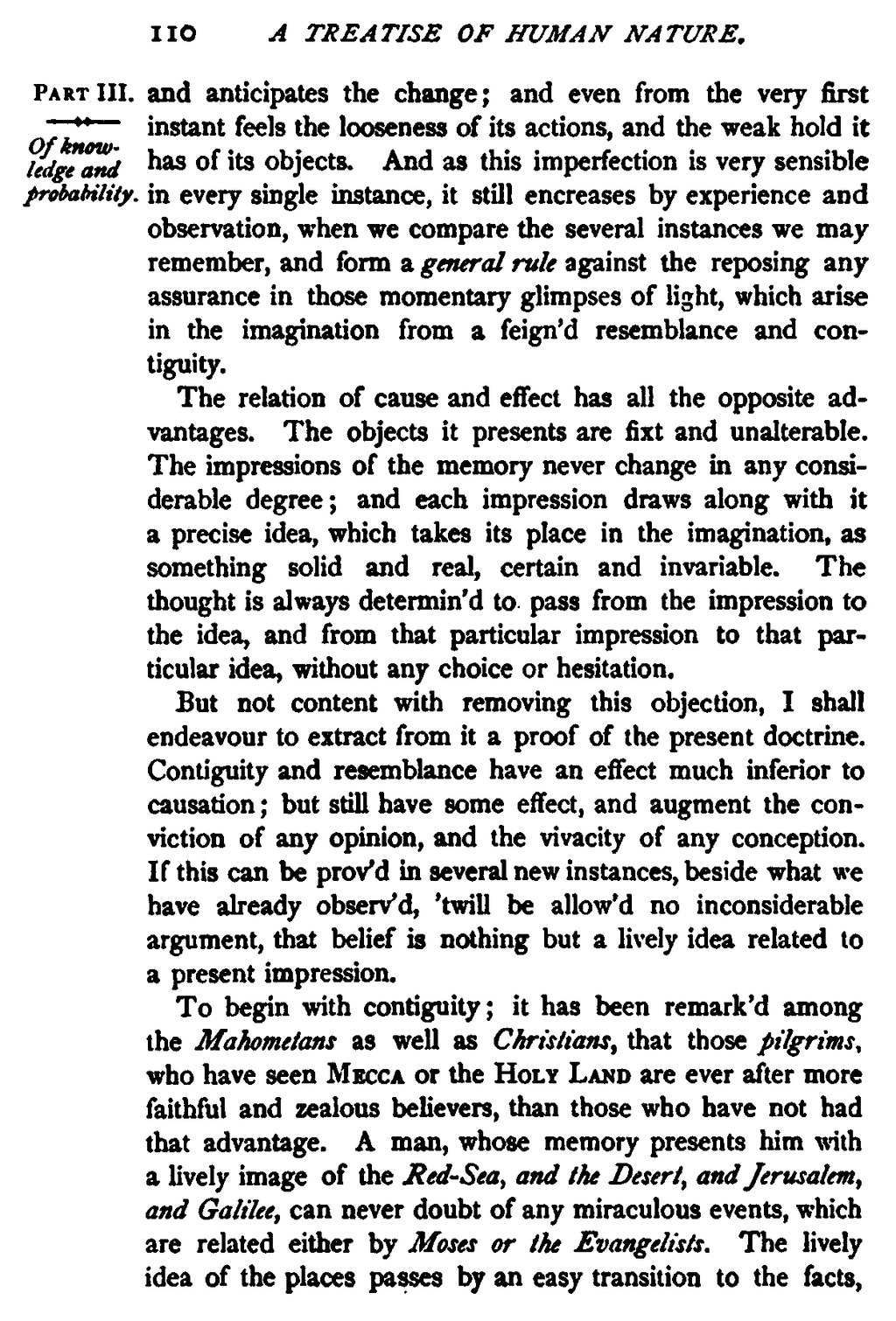and anticipates the change; and even from the very first instant feels the looseness of its actions, and the weak hold it has of its objects. And as this imperfection is very sensible in every single instance, it still encreases by experience and observation, when we compare the several instances we may remember, and form a general rule against the reposing any assurance in those momentary glimpses of light, which arise in the imagination from a feign'd resemblance and contiguity.
The relation of cause and effect has all the opposite advantages. The objects it presents are fixt and unalterable. The impressions of the memory never change in any considerable degree; and each impression draws along with it a precise idea, which takes its place in the imagination, as something solid and real, certain and invariable. The thought is always determin'd to pass from the impression to the idea, and from that particular impression to that particular idea, without any choice or hesitation.
But not content with removing this objection, I shall endeavour to extract from it a proof of the present doctrine. Contiguity and resemblance have an effect much inferior to causation; but still have some effect, and augment the conviction of any opinion, and the vivacity of any conception. If this can be prov'd in several new instances, beside what we have already observ'd, 'twill be allow'd no inconsiderable argument, that belief is nothing but a lively idea related to a present impression.
To begin with contiguity; it has been remark'd among the Mahometans as well as Christians, that those pilgrims, who have seen Mecca or the Holy Land are ever after more faithful and zealous believers, than those who have not had that advantage. A man, whose memory presents him with a lively image of the Red-Sea, and the Desert, and Jerusalem, and Galilee, can never doubt of any miraculous events, which are related either by Moses or the Evangelists. The lively
idea of the places passes by an easy transition to the facts,